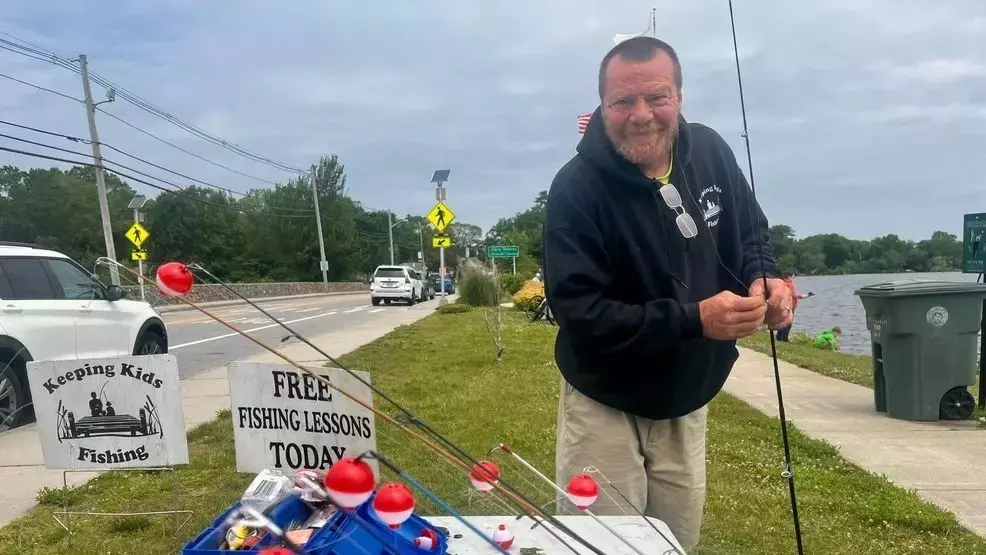
From Passion to Purpose: How One Man Is Redefining Outdoor Mentorship
Origins of a Community-Centric Vision
John Graichen didn’t set out to create a movement. His journey began organically when a few neighborhood children approached him with questions about fishing. At the time, he was simply enjoying a quiet day by the lake, doing what he loved. Their curiosity sparked something in him—a realization that not all kids had access to someone willing or able to teach them the basics of angling. He put out a simple message offering help, expecting maybe a handful of takers. Instead, word spread quickly, and soon families were showing up each week eager to learn. That grassroots effort evolved into “Keeping Kids Fishing,” a program built entirely on goodwill, generosity, and a shared love for the outdoors.
Graichen’s motivation stemmed from more than just a desire to share his hobby; it came from a deep understanding of how easily life can become overwhelming. As someone battling severe neurological Lyme disease and its accompanying mental health challenges, he found solace in the rhythm of fishing. He also recognized that many children—especially those from single-parent households or busy families—missed out on the kind of quality outdoor time that fosters growth, patience, and connection. By making equipment and instruction freely available, he removed financial and logistical barriers that might otherwise keep kids from experiencing the joys of fishing firsthand.
The Tools That Keep the Mission Afloat
At the heart of Graichen’s program is a commitment to accessibility. He doesn’t just offer lessons—he provides everything needed to get started. From poles and tackle to bait and guidance, participants walk away with all the essentials required to fish independently. This approach ensures that even those without prior experience or resources can engage in the activity long after their initial lesson. Over the years, he’s refined the process, streamlining equipment distribution while maintaining a personal touch that makes each participant feel valued.
Funding for these giveaways comes largely through voluntary donations via Venmo, which Graichen uses to replenish supplies and expand his reach. His transparency and genuine care have earned the trust of donors and participants alike. In addition to individual support, he’s formed partnerships with local organizations and businesses that provide additional resources, from gear sponsorships to event coordination. These collaborations allow him to scale his efforts without compromising the intimate, personalized experience that defines his outreach.
Breaking Generational Barriers Through Shared Experience
One of the most remarkable aspects of Graichen’s work is the diversity of individuals he reaches. His students range from toddlers barely old enough to hold a rod to seniors rediscovering a childhood pastime. This intergenerational appeal underscores the universal nature of his mission—not only is he teaching technical skills, but he’s also creating opportunities for bonding, storytelling, and mutual learning. Families often return week after week, turning a once-novel outing into a cherished tradition.
For many children, especially those living in urban environments or lacking regular exposure to nature, these sessions serve as a gateway to environmental awareness and appreciation. They learn about ecosystems, conservation, and responsible angling practices—all wrapped in the excitement of catching their first fish. For adults, particularly those dealing with stress, anxiety, or isolation, the experience offers therapeutic benefits. Watching a child’s face light up as they reel in a catch becomes a shared moment of triumph, reinforcing the idea that happiness can be found in simplicity and connection.
A Ripple Effect Beyond the Waterfront
The impact of Graichen’s initiative extends far beyond the lake’s edge. Parents report that their children spend less time glued to screens and more time exploring the outdoors. Teachers note improved focus and behavior in students who participate regularly. Local mental health professionals acknowledge the calming effects of nature-based activities, particularly for individuals managing anxiety or depression. Even law enforcement officers have praised the program for giving youth constructive ways to spend their weekends, reducing the likelihood of involvement in risky behaviors.
Perhaps most importantly, Graichen’s model has inspired others to consider how they might contribute to their communities in meaningful, sustainable ways. His story serves as a reminder that impactful change doesn’t always require grand gestures—it can start with a willingness to share knowledge, a few borrowed fishing rods, and the belief that small acts of kindness can generate waves of positive influence. Whether it’s through starting similar programs elsewhere or simply engaging more deeply with neighbors, the ripple effect continues to grow.
Looking Ahead: Sustaining a Legacy of Learning and Laughter
As Graichen looks toward the future, his goals remain rooted in the same principles that guided his first lesson nearly a decade ago. He hopes to continue expanding access to outdoor education while ensuring the sustainability of his efforts. Plans are underway to formalize training for volunteer instructors, develop instructional materials tailored for different age groups, and explore partnerships with schools and youth organizations to integrate fishing into broader wellness and environmental curricula.
Despite facing personal health challenges, Graichen remains steadfast in his commitment to the cause. His own well-being, he says, is intricately tied to the success of the program. Each smile, every excited shout of “I caught one!”, and the quiet satisfaction of watching someone master a new skill reaffirm why he keeps showing up week after week. There’s no medication stronger than purpose, and for Graichen, purpose comes in the form of a spinning reel, a wiggling trout, and the knowledge that he’s helping shape better, brighter futures—one cast at a time.
